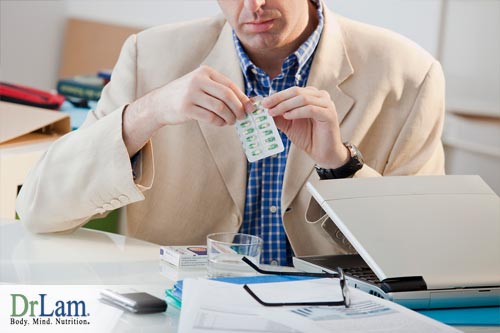 Today’s modern lifestyle has seen the anti anxiety and antidepressants industries skyrocket like never before. People, generally speaking, know that their lifestyles are too busy, and resort to medications in an effort to bring a little balance and relaxation into their lives. The problem is that the western lifestyle and accompanying western medicine only target the symptoms and do not address the root causes. Fortunately, there are many alternatives that can be more helpful. Homeopathy for instance looks at the body holistically and uses anti anxiety supplements to treat many of the problems associated with the modern living.
Today’s modern lifestyle has seen the anti anxiety and antidepressants industries skyrocket like never before. People, generally speaking, know that their lifestyles are too busy, and resort to medications in an effort to bring a little balance and relaxation into their lives. The problem is that the western lifestyle and accompanying western medicine only target the symptoms and do not address the root causes. Fortunately, there are many alternatives that can be more helpful. Homeopathy for instance looks at the body holistically and uses anti anxiety supplements to treat many of the problems associated with the modern living.
There are many other health issues common among highly stressed modern people including chronic fatigue, digestive problems, immune issues, and hormonal imbalances. All of these may be a sign of serious chronic problems like adrenal fatigue or dysfunction. Adrenal dysfunction is a common problem that occurs when the adrenal glands are overworked. Many practitioners of western medicine don’t recognize adrenal fatigue, so they tend to treat the symptoms without looking for an underlying cause. This can create many problems for people who suffer from Adrenal Fatigue Syndrome (AFS).
The adrenal glands form part of the hypothalamus-pituitary-adrenal (HPA) axis. The HPA axis is part of the neuroendocrine system and is directly responsible for the fight-or-flight reaction. It is the body’s coping mechanism when it experiences stress.
Under stressful situations the hypothalamus releases a hormone that stimulates the pituitary gland to produce adrenocorticotropic hormone (ACTH). ACTH in turns prompts the adrenal glands to produce cortisol. Your body needs cortisol to deal with stress of any kind. The adrenals also produce adrenaline, which charges your body up in order to take action.
Under normal circumstances, once a stressful situation is over, everything goes back to normal and the usual production of the different hormones ensues. When stress becomes ongoing and chronic, the demand for these hormones keeps increasing and adrenal fatigue can occur. Your adrenal glands continue to pump out even more cortisol to keep up with the demand. But eventually, your adrenals can’t keep up and the body’s NeuroEndoMetabolic (NEM) Stress Response kicks in.
If your stress isn’t alleviated, then your body may experience the different stages of adrenal fatigue. Each of them have their own specific symptoms and problems.Stage one of adrenal fatigue occurs when the adrenal glands are still able to supply the necessary hormones to ensure the body functions well. You may, however, experience sleep problem and fatigue.
In stage two of adrenal fatigue your adrenal glands are still operating fairly well. You may be able to function close to normal, although you may find yourself totally exhausted at the end of the day. You may also become dependent on coffee to keep you alert.
During the third stage of adrenal fatigue, your body might start compromising, producing more cortisol while producing less of certain non-essential hormones such as the sex hormones. The associated symptoms can include a downward swing in your sex drive, constant tiredness, regular infections. Irritability, anxiety, and depression.
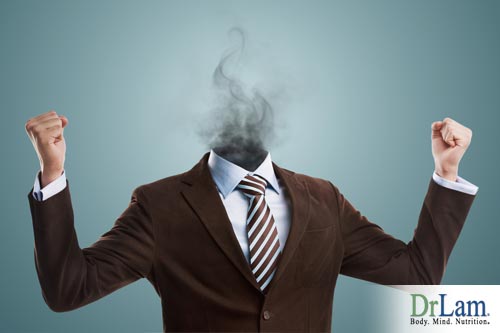 During the fourth and last stage of adrenal fatigue, you have what is commonly known as burnout. Your body can’t manufacture the hormones it needs to combat stress, and adrenal exhaustion is the result. You may feel utterly depleted, tired beyond your ability to describe it. You probably have absolutely no sex drive, feel anxious and depressed all the time, have started losing weight, and have no interest in what is going on around you. If you have reached this stage of adrenal fatigue, it takes a very long time to get healthy again.
During the fourth and last stage of adrenal fatigue, you have what is commonly known as burnout. Your body can’t manufacture the hormones it needs to combat stress, and adrenal exhaustion is the result. You may feel utterly depleted, tired beyond your ability to describe it. You probably have absolutely no sex drive, feel anxious and depressed all the time, have started losing weight, and have no interest in what is going on around you. If you have reached this stage of adrenal fatigue, it takes a very long time to get healthy again.
The adrenal glands have the ability to restore themselves, but it takes time, patience, and perseverance. It doesn’t happen overnight. One of the best strategies for better health is to look at your diet, and incorporate the correct nutrients and supplements for optimum nutrition. Certain anti anxiety supplements can also help you restore balance to your body and support your adrenal functions. A few lifestyle changes are also essential to this process.
Humanity has used natural resources such as herbs to help treat ailments for thousands of years. Amongst these are herbs to treat anxiety and depression. They can be ingested as part of a meal, or in extract or supplement form. These types of anxiety supplements are most often found in health shops.They can’t be used to replace medications that your doctor prescribes for you. However, they can be helpful additions to your health plan.
Everyone will react differently to anxiety supplements depending on your state of health and your individual body chemistry. That’s why it’s important that you seek out professional medical advice before taking any kind fo medication, particularly if your system is already sensitive due to AFS.
A few effective anti anxiety supplements to consider are:
Ginger root helps control the levels of cortisol in your body, is a great fat burner, helps normalize blood pressure, increases your body’s metabolic rate, and stimulates digestive enzymes. This herb also aids in the relief of anxiety and stress, which can have a negative effect on adrenal gland functionality.
Fresh ginger root is a staple in many households around the world because it’s used in cooking. As a home remedy, ginger tea helps to not only relieve stress but is a great aid in promoting healthy digestion and helps to detoxify the body as well.
If you have food sensitivities, be careful of ginger. It can be very stimulating to the gut and the body as a whole. If your system is already sensitive because of AFS, it may not respond positively to ginger.
Recent research proves that these anxiety supplements help to relax the body and also help combat depression and anxiety. Research has found that the plant, its essential oil, and chamomile extract taken in pill form could all be effective in combating anxiety, stress, and depression.
Chamomile is commonly taken as a tea. So, if you struggle with anxiety or depression, a cup of chamomile tea in the early morning is a great way to start out the day.
Herbalists often suggest that this herb is taken long term as its effects usually grow stronger over time. Chamomile has no known side effects.
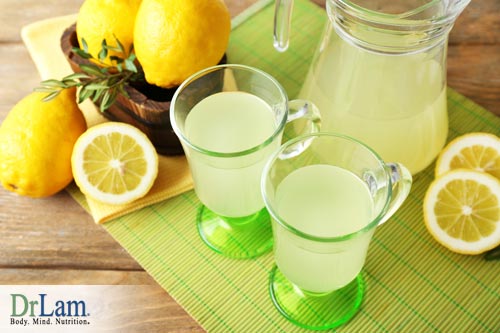 Warm lemon water is rich in vitamin C. It boosts the immune system, fights infection, helps with liver detoxification, aids kidney function, and restores the body’s pH balance. It can also enhance the body’s brain and nerve function, help combat diabetes, ease joint pains, fight fat, promote hydration, and help prevent adrenal fatigue.
Warm lemon water is rich in vitamin C. It boosts the immune system, fights infection, helps with liver detoxification, aids kidney function, and restores the body’s pH balance. It can also enhance the body’s brain and nerve function, help combat diabetes, ease joint pains, fight fat, promote hydration, and help prevent adrenal fatigue.
Additionally, the non-assuming lemon plays a role in adrenal recovery because of the vitamin C content. The highest percentage of vitamin C in the human body is stored in the adrenal glands where it is used in the production of hormones, including cortisol. So, helping normalize the adrenal glands’ store or Vitamin C can be helpful in boosting its natural functions.
Jojoba is found in many beauty products, essential oils, bath oils, and soap. Besides containing vitamin E, iodine, zinc, copper, silicon, and chromium, it also contains vitamin B complex. Each of the B vitamins has a direct or indirect impact on the functionality of the adrenal glands and adrenal fatigue. This combination is what makes this one of the most useful anxiety supplements.
However, it must be noted that B vitamins can be stimulating on the body. As such, those in advanced adrenal fatigue should proceed with caution when using B vitamins and jojoba as too much stimulation may lead to a crash.
Here are the benefits of some of the Vitamins contained in Jojoba:
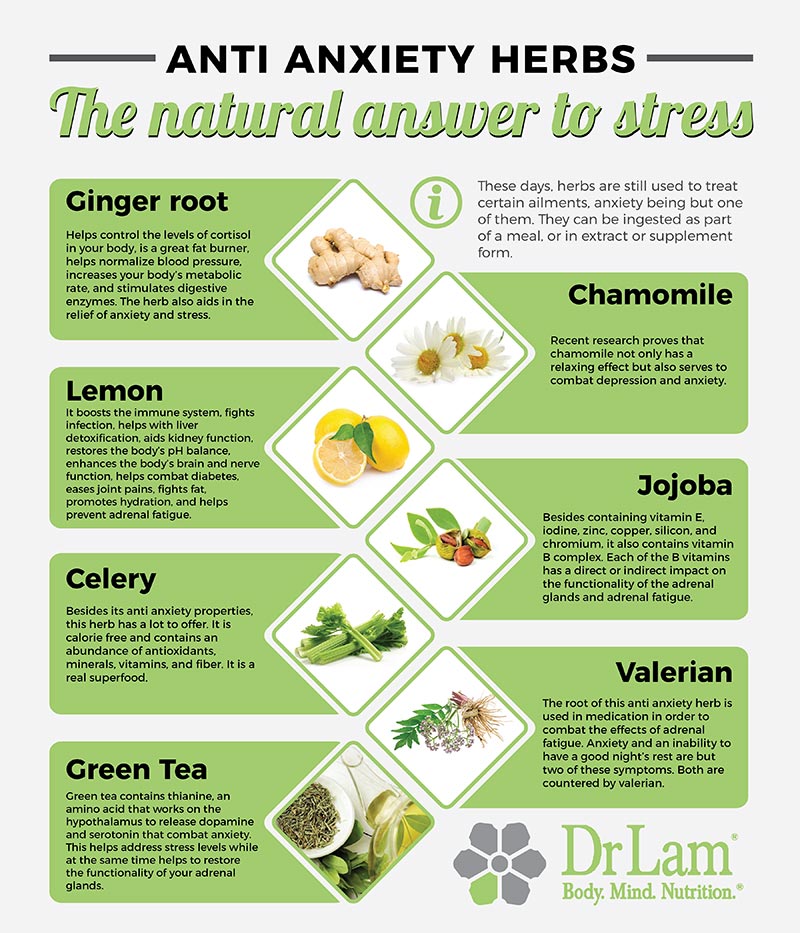
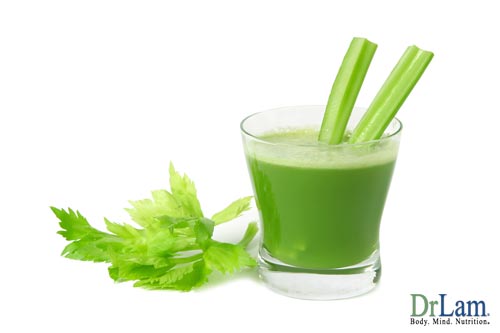 Besides being part of the anti anxiety supplements family, this herb has a lot to offer. It’s calorie free and contains an abundance of antioxidants, minerals, vitamins, and fiber, making it a real superfood.
Besides being part of the anti anxiety supplements family, this herb has a lot to offer. It’s calorie free and contains an abundance of antioxidants, minerals, vitamins, and fiber, making it a real superfood.
Some of the benefits of celery are:
Celery can be eaten raw, used as a flavor enhancer, or juiced.
This herb is used in medication in order to combat the effects of adrenal fatigue. It helps to counter anxiety and poor sleeping habits, both of which are characteristic of AFS.
Valerian also has been found to be of benefit to those who suffer from depression, asthma, have headaches, migraines, upset stomachs, and chronic fatigue. These are all symptoms of the various phases of adrenal fatigue.
Valerian acts on both the brain (the hypothalamus which is part of the HPA axis) and nervous system where it has a calming and soothing effect.
In advanced states of adrenal fatigue, sensitivities are common. A paradoxical reaction to valerian root canoccur in some cases, making feel more wired than calm. So, only use this herb with extreme caution and a doctor’s supervision.
Green tea contains thianine, an amino acid that works on the hypothalamus to release dopamine and serotonin that combat anxiety. This helps address stress levels while at the same time helps to restore the functionality of your adrenal glands. This combination of effects makes it one of the most useful anxiety supplements around.
Be careful with green tea as it also contains caffeine. Caffeine is stimulatory on the body and can increase anxiety levels. Anyone who has AFS in moderate to advanced stages should avoid supplement.
The passion flower, also known as the Passiflora incarnata, is used as a calming herb. Don’t be deceived by its beautiful name, as this flower, if ingested, will make you feel sleepy and drowsy. It’s common in herbal medicine, and was first discovered in 1569 in Peru.
It’s widely used for reducing anxiety, stress, seizures, hysteria, and insomnia. It may also help to relieve high blood pressure, an irregular heartbeat, asthma, and even some symptoms of menopause. If you often have trouble falling asleep, you will find a great sense of relaxation when you take passion flower. You can consume it as an herbal supplement, in the form of herbal tea, or as an extract. It can also be used on the skin to heal hemorrhoids, inflammation, and burns.
You shouldn’t take this supplement if you’re on prescription sedatives of any kind without first discussing it with a health practitioner. If you are pregnant or breastfeeding, you should also avoid using passion flower.
Lemon balm is from the mint family and is also known as Melissa Officinalis. Its use as a calming herb dates back to the Middle Ages. Lemon balm relieves stress, reduces anxiety, promotes better sleep, reduces pain, bloating, and gases in the gastrointestinal tract, and improves appetite, too. It can be used on the skin to relieve cold sores.
You can take lemon balm as a supplement, as dried leaves for tea, in the form of an essential oil or as a skin.
Now this one might be a pleasant surprise to many, as hops is a herb that’s found in beer and used as a flavoring agent. It is also known as Humulus lupulus, and it comes from a flowering plant species in the Cannabaceae family. Besides flavoring your favorite brew, hops can relieve your anxiety and stress remarkably. It’s been used for many years to alleviate anxiety, stress, and insomnia.
Many bodybuilders use hops to calm the body, help with weight-loss, and get a pleasant night’s rest. It can also reduce sleep disturbances, which are often caused by an excess of stress hormones in your blood. It can increase the flow of breast milk, improve appetite, relieve indigestion, reduce tension, and ADHD (attention deficient-hyperactivity disorder). If you are pregnant or breastfeeding, hops have not been reliably tested, so it is best to avoid taking it. Hops also act like estrogen, so if you have breast cancer or endometriosis you should refrain from ingesting it.
These anxiety supplements can be found in the form of a supplement or powder.
If you’re a fan of green tea because of its fat-burning benefits, then you’re in for some great news. L-theanine, a non-essential amino acid found in green tea, can relieve your anxiety, stress, and even depression. It also has some incredible effects on the brain The amino acid helps lessen stress signals in the brain and increases your “feel good” receptors, thus boosting your mood. Researchers have also found that this unique amino acid reduces blood pressure and heart rate increases and can make you feel an overall sense of calm. It can also help you focus better by reducing your anxious state and giving you the time and space to think clearly.
L-theanine can also help relieve insomnia, boost your immunity, increase stamina and energy levels, and enhance overall brain function. You should consume L-theanine as a supplement or as an extract as you won’t be able to drink enough green tea to get the necessary levels of this supplement to enjoy the desired benefits.
This is an Ayurvedic remedy that may be just as effective as medications in relieving anxiety. It’s usually taken in capsule form.
Kava Kava is a traditional calming tonic from the Pacific Islands. It works by targeting GABA receptors in your body. These receptors help manage anxiety symptoms, so this supplement basically enhances your body’s natural ways of regulating anxiety.
Kava Kava can be taken in capsule form but it shouldn’t be taken daily for more than 4 weeks.
This is one of the most commonly used anxiety supplements. It has very subtle sedative effects on the central nervous system that can help with anxiety and depression. It can be taken in tea or in supplement form on its own or with other calming herbs.
Bacopa extract can help protect the neurons in your brain and reduce cortisol levels. If you have AFS and high levels of cortisol throughout your body because of stress, this could be worsening your anxiety symptoms. It can be taken in supplement form.
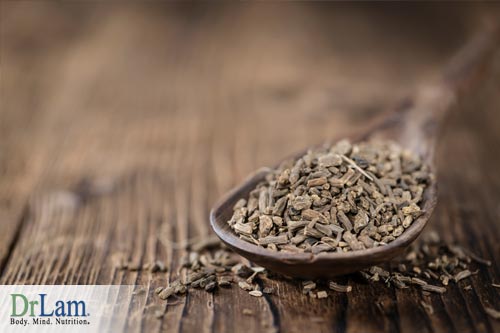 Recovery from or the prevention of adrenal fatigue and the associated symptoms of anxiety, need not change your life. It can be a gradual progression, starting with baby steps. By introducing a few small changes in your diet or lifestyle you can make a difference. And as your condition slowly turns around, more changes can be made such as:
Recovery from or the prevention of adrenal fatigue and the associated symptoms of anxiety, need not change your life. It can be a gradual progression, starting with baby steps. By introducing a few small changes in your diet or lifestyle you can make a difference. And as your condition slowly turns around, more changes can be made such as:
If you’re interested in anxiety supplements and want to know more, then contact our team on +1-626-571-1234. You can also click here and use the Ask The Doctor system to ask a question.
© Copyright 2016-2020 Michael Lam, M.D. All Rights Reserved.
